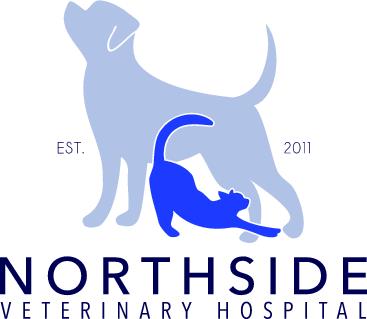Frequently Asked Questions
There is no question too big or too small for our veterinary team. Below are some answers to our most common questions.
We proudly serve pets in Shawnee, OK, and beyond.
At Northside Veterinary Hospital, we get a ton of interesting questions from pet parents. Below are some common FAQs that might help answer any questions or concerns. Please feel free to call us at 405-273-3700 for any other concerns you might have about your pet.
Frequently Asked Questions
If you feel your pet is in an emergency situation, please call the emergency hospital immediately. We have selected a recommended 24-hour emergency facility for small animals, horses, and ruminants. Our choice regarding these hospitals is a direct reflection of their ability to provide complete and competent care around the clock to your animals. These hospitals are designed and staffed in order to handle veterinary emergencies in the best way possible.
How do I know if my pet needs to see a doctor in an emergency?
There are certain types of illnesses/injuries that are almost always an emergency:
- Animal attack
- Bleeding wounds
- Collapsing episode
- Difficulty breathing
- Straining/unable to urinate, especially in male cats and dogs
- Dystocia (difficulty birthing)
- Hit-by-car incidents
- Ingestion of medications, poisons, or foreign objects
- Large breed dogs with “dry heaves”
- Seizures
- Severe diarrhea/vomiting
- Shock (weakness, pale gums, cold feet, and elevated heart rate)
- Unresponsiveness
My pet has ingested something that may be toxic. Now what do I do?
If you are concerned that your pet may have ingested something poisonous, call the ASPCA Animal Poison Control Center at 1-888-426-4435 for specific instructions. If they instruct you to bring your pet to the hospital, they will provide you a case number that will allow the emergency doctors to contact them for further information on your individual pet. Be sure to bring this case number with you.
How can I be prepared for an emergency?
- Have the emergency hospital’s number posted on your refrigerator for easy access.
- Know how to handle emergencies for which your pet may be at high risk
Example: Know what is “normal” for a dog’s whelping experience and how to troubleshoot common problems before your dog goes into labor.
Example: Be aware of common problems within your breed. For example, small breed puppies like yorkies and chihuahuas struggle with low blood sugar, so be sure to have some karo syrup or nutrical on hand.
- Ask your veterinarian what information might be helpful for your particular situation. For example, if you live in a wooded area, your pet may be at a higher risk for snake bites. Your veterinarian can help you be prepared in the event of a snake bite.
- Keep some over-the-counter medications handy that can be helpful for common illnesses/injuries.
As always, do not hesitate to contact an emergency hospital if you feel your pet is in an emergency situation.
